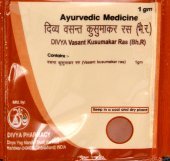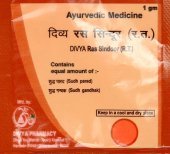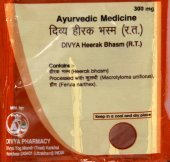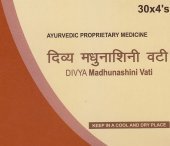Divya, Divyā: 34 definitions
Introduction:
Divya means something in Buddhism, Pali, Hinduism, Sanskrit, Jainism, Prakrit, the history of ancient India, Marathi, Hindi, biology. If you want to know the exact meaning, history, etymology or English translation of this term then check out the descriptions on this page. Add your comment or reference to a book if you want to contribute to this summary article.
Images (photo gallery)
In Hinduism
Purana and Itihasa (epic history)
Source: Cologne Digital Sanskrit Dictionaries: The Purana Index1a) Divya (दिव्य).—A son of Sātvata.*
- * Bhāgavata-purāṇa IX. 24. 6; Brahmāṇḍa-purāṇa III. 71. 1. Viṣṇu-purāṇa IV. 13. 1.
1b) A son of Uttama Manu.*
- * Brahmāṇḍa-purāṇa II. 36. 39.
1c) A God of Sutāra group.*
- * Brahmāṇḍa-purāṇa IV. 1. 89.
1d) A son of Kauśalyā.*
- * Vāyu-purāṇa 96. 1.
2a) Divyā (दिव्या).—A daughter of Hiraṇyakaśipu and wife of Bhṛgu, the first Prajāpati; son Śukra; had also a daughter.*
- * Brahmāṇḍa-purāṇa III. 1. 74-6. 88; Vāyu-purāṇa 65. 72.
2b) An Apsaras.*
- * Brahmāṇḍa-purāṇa III. 7. 7.

The Purana (पुराण, purāṇas) refers to Sanskrit literature preserving ancient India’s vast cultural history, including historical legends, religious ceremonies, various arts and sciences. The eighteen mahapuranas total over 400,000 shlokas (metrical couplets) and date to at least several centuries BCE.
Pancaratra (worship of Nārāyaṇa)
Source: Shodhganga: Iconographical representations of Śiva (pancaratra)Divya (दिव्य) refers to the first group of the Pāñcarātra classifications of Vaiṣṇavāgamas: one of the three classes of āgamas (traditionally communicated wisdom).—Texts of the Pāñcara Āgamas are divided in to two sects. It is believed that Lord Vāsudeva revealed the first group of texts which are called Divya and the next group is called Muniprokta.
The Divya Āgamas are:
- Sāttvatasaṃhitā,
- Pauṣkarasaṃhitā,
- Jayākhyasaṃhitā,
- Aniruddhasaṃhitā,
- Saṅkarṣaṇasaṃhitā,
- Hayagrīvasaṃhitā,
- Varāhasaṃhitā,
- Pradyumnasaṃhitā,
- Vāmanasaṃhitā,
- Nārāyaṇasaṃhitā,
- Vāsudevasaṃhitā.

Pancaratra (पाञ्चरात्र, pāñcarātra) represents a tradition of Hinduism where Narayana is revered and worshipped. Closeley related to Vaishnavism, the Pancaratra literature includes various Agamas and tantras incorporating many Vaishnava philosophies.
Ayurveda (science of life)
Nighantu (Synonyms and Characteristics of Drugs and technical terms)
Source: WorldCat: Rāj nighaṇṭu1) Divyā (दिव्या) is another name for Vandhyākarkoṭakī, a medicinal plant identified with Momordica dioica (spiny gourd) from the Cucurbitaceae or “gourd family” of flowering plants, according to verse 3.61-63 of the 13th-century Raj Nighantu or Rājanighaṇṭu. The third chapter (guḍūcyādi-varga) of this book contains climbers and creepers (vīrudh). Together with the names Divyā and Vandhyākarkoṭakī, there are a total of nineteen Sanskrit synonyms identified for this plant.
2) Divyā (दिव्या) is also mentioned as a synonym for Mahāmedā, an unidentified medicinal plant, according to verse 5.25-27. The fifth chapter (parpaṭādi-varga) of this book enumerates sixty varieties of smaller plants (kṣudra-kṣupa). Together with the names Divyā and Mahāmedā, there are a total of eleven Sanskrit synonyms identified for this plant.
3) Divyā (दिव्या) is also mentioned as a synonym for Brāhmī, a medicinal plant identified with two possibly species verse, according to verse 5.63-66. Together with the names Suvarcalā and Brāhmī, there are a total of twenty-four Sanskrit synonyms identified for this plant. Note: Chopra identifies Brāhmī with 1) Centella asiatica (Linn.) Urban. while Bāpālāl and Th. B.S. et al identify it with 2) Bacopa monnieri (Linn.) Pennell.
Dietetics and Culinary Art (such as household cooking)
Source: Shodhganga: Dietetics and culinary art in ancient and medieval India1) Divya (दिव्य) refers to a type of spirituous liquor, according to the Vālmīkirāmāyaṇa Sundarakāṇḍa 11.22, and is commonly found in literature dealing with the topics of dietetics and culinary art, also known as Pākaśāstra or Pākakalā.—Vālmīkirāmāyaṇa mentions two varieties of suras ie. surā and kṛtasurā (ordinary one and the fermented one), four varieties of āsavas (spirituous liquor) such as puṣpāsava, phalāsava, madhvāsava and śarkarāsava and two more varieties such as divya and prasanna.
2) Divya (दिव्य) or Divyajala refers to “rain water” and is mentioned as being beneficial (hita) to the body according to the 17th century Bhojanakutūhala (dravyaguṇāguṇa-kathana), and is commonly found in literature dealing with the topics of dietetics and culinary art, also known as Pākaśāstra or Pākakalā.—The dravyaguṇāguṇa section contains the discussions on different food articles and their dietetic effects according to the prominent Ayurvedic treatises. Here In the jala (water) group divya (rain water) is mentioned as beneficial to the body (hita).
Unclassified Ayurveda definitions
Source: archive.org: Vagbhata’s Ashtanga Hridaya Samhita (first 5 chapters)Divya (दिव्य) refers to “rain-water” or “celestial (water)”, mentioned in verse 3.46 and 5.7 of the Aṣṭāṅgahṛdayasaṃhitā (Sūtrasthāna) by Vāgbhaṭa.—Accordingly, “[...] as the (humours and the gastric fire) irritate one another this way, one shall turn to all (substances) that (are) applicable to all humours and promotive of the (gastric) fire: [...] whey richly mixed with sochal salt or besprinkled with powder of the five spices, rain-water [viz., divya], well-water, and boiled water; in very bad weather, however, food”.
Note: Divya (sc. ambhas) (“rain-water”) and tu (“however”) have been left untranslated, whereas ca (“and”) has been replaced by ’aṅ ruṅ (“or else”).

Āyurveda (आयुर्वेद, ayurveda) is a branch of Indian science dealing with medicine, herbalism, taxology, anatomy, surgery, alchemy and related topics. Traditional practice of Āyurveda in ancient India dates back to at least the first millenium BC. Literature is commonly written in Sanskrit using various poetic metres.
Shilpashastra (iconography)
Source: Shodhganga: Vaisnava Agamas And Visnu ImagesDivya (दिव्य) refers to “icons in places installed by divinities”, as defined in treatises such as the Pāñcarātra, Pādmasaṃhitā and Vaikhānasa-āgamas, extensively dealing with the technical features of temple art, iconography and architecture in Vaishnavism.—As far as the Jīrṇoddhāraṇa (renovation) metal icons are concerned, the Vaiṣṇava Āgamas lay special rules because the authors of the Āgamas obviously knew the value and re-usable condition of metals. [...] Some special rules are prescribed in the Vaiṣṇava Āgamas regarding the jīrṇoddhāraṇa of the metal icons installed in the places generally known as svayaṃvyakta (self-emanated), divya (installed by divinities), saiddha (installed by Siddhas) and ārsa (installed by Ṛṣis). In the renovation process, the permission to correct the characteristics (lakṣaṇa) of the icon is not admissible in these aforesaid places. The measurements and characteristics less or more, the same material is to be retained as it were. [...]

Shilpashastra (शिल्पशास्त्र, śilpaśāstra) represents the ancient Indian science (shastra) of creative arts (shilpa) such as sculpture, iconography and painting. Closely related to Vastushastra (architecture), they often share the same literature.
Vaishnavism (Vaishava dharma)
Source: Pure Bhakti: Brhad BhagavatamrtamDivya (दिव्य) refers to:—Divine. (cf. Glossary page from Śrī Bṛhad-bhāgavatāmṛta).

Vaishnava (वैष्णव, vaiṣṇava) or vaishnavism (vaiṣṇavism) represents a tradition of Hinduism worshipping Vishnu as the supreme Lord. Similar to the Shaktism and Shaivism traditions, Vaishnavism also developed as an individual movement, famous for its exposition of the dashavatara (‘ten avatars of Vishnu’).
Shaktism (Shakta philosophy)
Source: Google Books: ManthanabhairavatantramDivya (दिव्य) refers to “divine”, according to the Manthānabhairavatantra, a vast sprawling work that belongs to a corpus of Tantric texts concerned with the worship of the goddess Kubjikā.—Accordingly, “I am that sleeping serpent and, as is proper, (my) form is (both) divine and human [i.e., divya-adivya-svarūpiṇī]. (I am) the Bliss of Stillness, incomparable, Anāmā, who is Parāparā. (I am) Aparā the energy Kaulinī and Parā who, devoid of (phenomenal) characteristics, is imperceptible. I am that goddess Kubjikā. I am the crooked (goddess). I am the one with the lion’s look and I am the one whose vehicle is Śiva”.

Shakta (शाक्त, śākta) or Shaktism (śāktism) represents a tradition of Hinduism where the Goddess (Devi) is revered and worshipped. Shakta literature includes a range of scriptures, including various Agamas and Tantras, although its roots may be traced back to the Vedas.
Jyotisha (astronomy and astrology)
Source: Wisdom Library: Brihat Samhita by VarahamihiraDivya (दिव्य) or Divyakeyu refers to the “celestial” type of Ketus, according to the Bṛhatsaṃhitā (chapter 11), an encyclopedic Sanskrit work written by Varāhamihira mainly focusing on the science of ancient Indian astronomy astronomy (Jyotiṣa).—Accordingly, “Having examined the treatises of Garga, Parāśara, Asita, Devala and many others on Ketus, I now proceed to give a clear account of the same. The reappearance or disappearance of the Ketus is not subject to astronomical calculations. The Ketus are of three kinds—celestial, etherial and terrestrial [i.e., divya-antarikṣa-bhauma]. Ketus are luminous appearances resembling fíre but without the power to consume objects—the glow worm, certain phosphorescent appearances, gems, precious stones and the like excepted”.

Jyotisha (ज्योतिष, jyotiṣa or jyotish) refers to ‘astronomy’ or “Vedic astrology” and represents the fifth of the six Vedangas (additional sciences to be studied along with the Vedas). Jyotisha concerns itself with the study and prediction of the movements of celestial bodies, in order to calculate the auspicious time for rituals and ceremonies.
Yoga (school of philosophy)
Source: ORA: Amanaska (king of all yogas): A Critical Edition and Annotated Translation by Jason BirchDivya (दिव्य) refers to “(that which is) divine”, according to the Muṇḍakopaniṣad 2.1.2-3:.—Accordingly, while describing Brahma and the mind: “For, the [cosmic] man is divine (divya), formless, outside and inside [of everything], unborn, breathless, mindless, radiant and higher than the highest imperishable one”.

Yoga is originally considered a branch of Hindu philosophy (astika), but both ancient and modern Yoga combine the physical, mental and spiritual. Yoga teaches various physical techniques also known as āsanas (postures), used for various purposes (eg., meditation, contemplation, relaxation).
General definition (in Hinduism)
Source: Shodhganga: Kasyapa Samhita—Text on Visha Chikitsa (h)Divya (दिव्य) refers to “those Āgamas promulgated by Lord Vāsudeva”.—There is another classification of Āgamas as Sāttvika, Rājasa and Tāmasa. These three can again be classified into three types as (i) divya—promulgated by Lord Vāsudeva himself and found only in the devaloka, (ii) munibhāṣita—spoken by gods and sages and (iii) mānuṣa—spoken by mortals (Īśvara Saṃhitā. I.54-6, 63cd):
In Buddhism
Mahayana (major branch of Buddhism)
Source: Wisdom Library: Maha Prajnaparamita SastraDivya (दिव्य, “celestial”).—According to the 2nd century Mahāprajñāpāramitāśāstra (chapter XIV), it is customary in India to call celestial (divya) anything that is beautiful. Even though the flowers of the manuṣya and amanuṣya do not come from the heavens, they can, nevertheless, be described as ‘celestial’ because of their beauty.
Divya or Divyacakṣus refers to one the “five eyes” (cakṣus) as defined in the Dharma-saṃgraha (section 65).
Source: academia.edu: A Study and Translation of the GaganagañjaparipṛcchāDivya (दिव्य) refers to “divine” (e.g, flowers, incense, garlands, unguents, etc), according to the Gaganagañjaparipṛcchā: the eighth chapter of the Mahāsaṃnipāta (a collection of Mahāyāna Buddhist Sūtras).—Accordingly, “[...] Then the Wicked One, having conjured up canopies adorned with eighty four thousand jewels, offered them to the congregations. Having held numerous kinds of divine flowers (divya-puṣpa), incense, garlands and unguents, he scattered them on the place where the Lord stayed, and said this to the Lord together with his servants: ‘If the Bodhisattva Gaganagañja gives us the treasury of open space (gaganagañja), we will produce the thought of incomparable complete awakening’ [...]”.

Mahayana (महायान, mahāyāna) is a major branch of Buddhism focusing on the path of a Bodhisattva (spiritual aspirants/ enlightened beings). Extant literature is vast and primarely composed in the Sanskrit language. There are many sūtras of which some of the earliest are the various Prajñāpāramitā sūtras.
Tibetan Buddhism (Vajrayana or tantric Buddhism)
Source: Wisdom Library: Tibetan BuddhismDivya (दिव्य) is the name of a Tathāgata (Buddha) mentioned as attending the teachings in the 6th century Mañjuśrīmūlakalpa: one of the largest Kriyā Tantras devoted to Mañjuśrī (the Bodhisattva of wisdom) representing an encyclopedia of knowledge primarily concerned with ritualistic elements in Buddhism. The teachings in this text originate from Mañjuśrī and were taught to and by Buddha Śākyamuni in the presence of a large audience (including Divya).
Source: 84000: Sampuṭodbhava Tantra (Emergence from Sampuṭa)Divyā (दिव्या) refers to one of the primary thirty-two energy-channels in the body, according to the Sampuṭodbhavatantra chapter 1.—Accordingly, “[Vajragarbha asked, ‘What subtle energy channels are in the body?’]—The Blessed One said, ‘There are one hundred and twenty of them, corresponding to the divisions within the four cakras. The chief ones, those with bodhicitta as their innate nature, are thirty-two in number. They are: [i.e., Divyā] [...]’.”.

Tibetan Buddhism includes schools such as Nyingma, Kadampa, Kagyu and Gelug. Their primary canon of literature is divided in two broad categories: The Kangyur, which consists of Buddha’s words, and the Tengyur, which includes commentaries from various sources. Esotericism and tantra techniques (vajrayāna) are collected indepently.
In Jainism
General definition (in Jainism)
Source: archive.org: TrisastisalakapurusacaritraDivyā (दिव्या) is the name of an Apsaras, instructed by Śakra to help in the preparations of Ṛṣabha’s wedding-preparations, according to chapter 1.2 [ādīśvara-caritra] of Hemacandra’s 11th century Triṣaṣṭiśalākāpuruṣacaritra: an ancient Sanskrit epic poem narrating the history and legends of sixty-three illustrious persons in Jainism.
Accordingly,
Source: The University of Sydney: A study of the Twelve Reflections“[...] Then having ascertained the Lord’s purpose, Purandara at once summoned gods for the tasks of the wedding-preparations.—‘[...] Why do you joke idly, Divyā? Time for the ceremony is near. Then with all your heart hurry, each one of you, to your wedding-task that must be done? [...]’. From the bustling of the Apsarases instructing each other in this way, and frequently calling names, a mighty tumult arose”.
1) Divya (दिव्य) refers to “heavenly (pleasure)”, according to the 11th century Jñānārṇava, a treatise on Jain Yoga in roughly 2200 Sanskrit verses composed by Śubhacandra.—Accordingly, “And, having obtained the good fortune of heaven, [those corporeal beings] enjoy heavenly pleasure (divya—nirviśanti sukhaṃ divyam) in the lower heavens and in the celestial vehicles or among other groups [of gods]. They fall from that place [and] immediately they enter the Rasātala hell. They roam about the whole world like the wind [and] they fall down into the Naraka hell”.
2) Dīvya (दीव्य) refers to “playful (knowledge)”, according to the Jñānārṇava.—Accordingly, “Certainly in this world the one knowing the higher knowledge constantly obtains fearlessness [and] happiness that is beyond the senses [and] imperishable through the reflections with playful knowledge (dīvya-jñā). The fire of passion becomes extinguished, desire flows away, darkness disappears [and] the light of knowledge shines forth in the heart for men from the repetition of the reflections”.
Synonyms: Dīvyat, Krīḍā.

Jainism is an Indian religion of Dharma whose doctrine revolves around harmlessness (ahimsa) towards every living being. The two major branches (Digambara and Svetambara) of Jainism stimulate self-control (or, shramana, ‘self-reliance’) and spiritual development through a path of peace for the soul to progess to the ultimate goal.
India history and geography
Source: Cologne Digital Sanskrit Dictionaries: Indian Epigraphical GlossaryDivya.—(IA 10; LP), an ordeal; same as parīkṣā. Note: divya is defined in the “Indian epigraphical glossary” as it can be found on ancient inscriptions commonly written in Sanskrit, Prakrit or Dravidian languages.

The history of India traces the identification of countries, villages, towns and other regions of India, as well as mythology, zoology, royal dynasties, rulers, tribes, local festivities and traditions and regional languages. Ancient India enjoyed religious freedom and encourages the path of Dharma, a concept common to Buddhism, Hinduism, and Jainism.
Biology (plants and animals)
Source: Google Books: CRC World Dictionary (Regional names)1) Divya in India is the name of a plant defined with Asparagus racemosus in various botanical sources. This page contains potential references in Ayurveda, modern medicine, and other folk traditions or local practices It has the synonym Asparagopsis hohenackerii Kunth (among others).
2) Divya is also identified with Casearia esculenta It has the synonym Casearia ovata Roxb. (etc.).
3) Divya is also identified with Commiphora mukul It has the synonym Commiphora mukul (Hook. ex Stocks) Engl. (etc.).
4) Divya is also identified with Hordeum vulgare It has the synonym Zeocriton distichum P. Beauv. (etc.).
5) Divya is also identified with Ocimum tenuiflorum It has the synonym Plectranthus monachorum Spreng. (etc.).
6) Divya is also identified with Terminalia chebula It has the synonym Myrobalanus chebula Gaertn. (etc.).
Example references for further research on medicinal uses or toxicity (see latin names for full list):
· Enum. Pl. (1850)
· Tent. Fl. Abyss. (1850)
· Revue de Cytologie et de Biologie Végétales, le Botaniste (1984)
· Biblioth. Bot. (1928)
· Proceedings of the Indian Science Congress Association (1992)
· South African Journal of Botany (1983)
If you are looking for specific details regarding Divya, for example pregnancy safety, diet and recipes, health benefits, extract dosage, side effects, chemical composition, have a look at these references.

This sections includes definitions from the five kingdoms of living things: Animals, Plants, Fungi, Protists and Monera. It will include both the official binomial nomenclature (scientific names usually in Latin) as well as regional spellings and variants.
Languages of India and abroad
Pali-English dictionary
Source: BuddhaSasana: Concise Pali-English Dictionarydivya : (adj.) divine; celestial. (see dibba).
Source: Sutta: The Pali Text Society's Pali-English DictionaryDivya, (Sk. divya; the verse-form for the prose-form dibba (q. v.)) (adj.) divine Sn.153 (cp. SnA 219 under divi°), 524 (+mānusaka); J.VI, 172.—(nt.) the divinity, a divine being (=devatā) J.VI, 150; SnA 219. (Page 323)

Pali is the language of the Tipiṭaka, which is the sacred canon of Theravāda Buddhism and contains much of the Buddha’s speech. Closeley related to Sanskrit, both languages are used interchangeably between religions.
Marathi-English dictionary
Source: DDSA: The Molesworth Marathi and English Dictionarydivya (दिव्य).—a (S) Divine. 2 Beautiful, charming, fine, splendid, superb, superlatively good. Used with great latitude.
--- OR ---
divya (दिव्य).—n (S) Ordeal. v kāḍha, ghē, kara. There are five great divisions, viz. tulā, agni, ap, viṣa, kōśa, each consisting of numerous particular forms. divya utaraṇēṃ in.con. To undergo an ordeal successfully. divya lāgaṇēṃ To take effect injuriously--an ordeal. divyāntūna or divyāsa utaraṇēṃ To come safe out of an ordeal, and, fig., a fiery trial or heavy affliction.
Source: DDSA: The Aryabhusan school dictionary, Marathi-Englishdivya (दिव्य).—a Divine. Beautiful, charming, or fine, splendid. n Ordeal. v kāḍha, ghē, kara. divya utaraṇēṃ To undergo an ordeal success- fully. divya lāgaṇēṃ To take effect injuri- ously-an ordeal.
Marathi is an Indo-European language having over 70 million native speakers people in (predominantly) Maharashtra India. Marathi, like many other Indo-Aryan languages, evolved from early forms of Prakrit, which itself is a subset of Sanskrit, one of the most ancient languages of the world.
Sanskrit dictionary
Source: DDSA: The practical Sanskrit-English dictionaryDivya (दिव्य).—a. [divi bhavaḥ yat]
1) Divine, heavenly, celestial; दिव्यस्त्वं हि न मानुषः (divyastvaṃ hi na mānuṣaḥ) Mahābhārata (Bombay) 3.252.8.
2) Supernatural, wonderful; परदोषेक्षणदिव्यचक्षुषः (paradoṣekṣaṇadivyacakṣuṣaḥ) Śiśupālavadha 16.29; दिव्यं ददामि ते चक्षुः (divyaṃ dadāmi te cakṣuḥ) Bhagavadgītā (Bombay) 11.8.
3) Brilliant, splendid.
4) Charming, beautiful.
-vyaḥ 1 A superhuman or celestial being; दिव्यानामपि कृतविस्मयां पुरस्तात् (divyānāmapi kṛtavismayāṃ purastāt) Śiśupālavadha 8.64.
2) Barley.
3) An epithet of Yama.
4) A fragrant resin, bdellium.
5) A philosopher.
-vyam 1 Celestial nature, divinity.
2) The sky.
3) An ordeal (of which 1 kinds are enumerated); cf. Y.2.22,95.
4) An oath, a solemn declaration.
5) Cloves.
6) A kind of sandal.
7) A kind of water.
Source: Cologne Digital Sanskrit Dictionaries: Shabda-Sagara Sanskrit-English DictionaryDivya (दिव्य).—mfn.
(-vyaḥ-vyā-vyaṃ) 1. Divine, celestial. 2. Beautiful, agreeable, charming. m.
(-vyaḥ) 1. Barley. 2. A fragrant resin, (Bdelliun.) 3. The divine character or property. f.
(-vyā) Emblic myrobalan. n.
(-vyaṃ) 1. Cloves. 2. A sort of Sandal. 3. An ordeal. 4. An oath. E. dyu the sky or heaven, and yat aff. divi bhavaḥ .
Source: Cologne Digital Sanskrit Dictionaries: Benfey Sanskrit-English DictionaryDivya (दिव्य).—[div + ya], I. adj., f. yā. 1. Celestial,
— Cf. [Latin] divus.
Source: Cologne Digital Sanskrit Dictionaries: Cappeller Sanskrit-English DictionaryDivya (दिव्य).—[adjective] heavenly ([opposed] earthly), divine ([opposed] human), wonderful, splendid. [neuter] anything heavenly or divine, [especially] celestial good, the celestial regions ([plural]), ordeal, oath.
Source: Cologne Digital Sanskrit Dictionaries: Monier-Williams Sanskrit-English Dictionary1) Divya (दिव्य):—[from div] 1. divya [Nominal verb] [Parasmaipada] yati, to long for heaven, [Pāṇini 8-2, 77 [Scholiast or Commentator]]
2) [v.s. ...] 2. divya mfn. (divya, [Pāṇini 4-2, 101]) divine, heavenly, celestial (opp. to pārthiva, āntarīkṣa or mānuṣa), [Ṛg-veda; Atharva-veda; Śatapatha-brāhmaṇa; Kauśika-sūtra; Mahābhārata] etc.
3) [v.s. ...] supernatural, wonderful, magical (aṅgāra, [Ṛg-veda x, 34, 9]; auṣadha, [Bhartṛhari ii, 18]; vāsas, [Nalopākhyāna xiv, 24]; cf. -cakṣus, -jñāna etc. below)
4) [v.s. ...] charming, beautiful, agreeable, [Rāmāyaṇa; Kathāsaritsāgara] etc.
5) [v.s. ...] m. a kind of animal (= dhanvana), [Varāha-mihira’s Bṛhat-saṃhitā lxxxviii, 9]
6) [v.s. ...] barley, [cf. Lexicographers, esp. such as amarasiṃha, halāyudha, hemacandra, etc.]
7) [v.s. ...] bdellium, [cf. Lexicographers, esp. such as amarasiṃha, halāyudha, hemacandra, etc.]
8) [v.s. ...] Name of a prince, [Purāṇa]
9) [v.s. ...] of the author of [Ṛg-veda x, 107 etc.]
10) Divyā (दिव्या):—[from divya > div] f. Name of plants (= harītakī, bandhyā, karkoṭahī, śatāvarī, mahā-medā etc.), [cf. Lexicographers, esp. such as amarasiṃha, halāyudha, hemacandra, etc.]
11) [v.s. ...] a kind of perfume = surā, [cf. Lexicographers, esp. such as amarasiṃha, halāyudha, hemacandra, etc.]
12) [v.s. ...] Name of a, [Buddhist literature] deity, [Kālacakra]
13) [v.s. ...] of an Apsaras [Scholiast or Commentator]
14) Divya (दिव्य):—[from div] n. the divine world or anything d°
15) [v.s. ...] [plural] the celestial regions, the sky, heaven, [Ṛg-veda]
16) [v.s. ...] an ordeal (10 kinds, viz. tulā, agni, jala, viṣa, kośa, taṇḍula, tapta-māṣa, phāla, dharmādharma, tulasī cf. ss.vv.), [Yājñavalkya ii, 22, 95; Pañcatantra i, 450/451, 451, 452 etc.]
17) [v.s. ...] oath, solemn promise, [Hitopadeśa iv, 129/130] cloves, [cf. Lexicographers, esp. such as amarasiṃha, halāyudha, hemacandra, etc.]
18) [v.s. ...] a sort of sandal, [cf. Lexicographers, esp. such as amarasiṃha, halāyudha, hemacandra, etc.]
19) [v.s. ...] Name of a grammar,
20) [v.s. ...] cf. [Greek] δῖος for διϝιος; [Latin] dīus for divius in sub dIo.
Source: Cologne Digital Sanskrit Dictionaries: Yates Sanskrit-English Dictionary1) Divya (दिव्य):—[(vyaḥ-vyā-vyaṃ) a.] Divine, beautiful. m. Barley; bdellium; a divine property. f. Emblic myrobalan. n. Cloves; a sort of sandal; an ordeal; an oath.
2) [dharmmin (rmmī-rmminī-rmmi) a.] Virtuous, good; agreeable.
Source: DDSA: Paia-sadda-mahannavo; a comprehensive Prakrit Hindi dictionary (S)Divya (दिव्य) in the Sanskrit language is related to the Prakrit word: Divva.
[Sanskrit to German]
Sanskrit, also spelled संस्कृतम् (saṃskṛtam), is an ancient language of India commonly seen as the grandmother of the Indo-European language family (even English!). Closely allied with Prakrit and Pali, Sanskrit is more exhaustive in both grammar and terms and has the most extensive collection of literature in the world, greatly surpassing its sister-languages Greek and Latin.
Hindi dictionary
Source: DDSA: A practical Hindi-English dictionaryDivya (दिव्य) [Also spelled divy]:—(a) divine, celestial; charming, beautiful; brilliant; ~[cakṣu] gifted with divine vision, charming-eyed; blind; ~[dṛṣṭī] divine insight; penetrating vision; —[puruṣa] divine person; ~[mūrti] divine being/figure; hence [divyatā, divyatva].
...
Kannada-English dictionary
Source: Alar: Kannada-English corpusDivya (ದಿವ್ಯ):—
1) [adjective] heavenly.
2) [adjective] noble; exalted; sublime; majestic.
3) [adjective] charming; beautiful; attractive.
4) [adjective] being, born or happened in the sky; celestial.
5) [adjective] extremely unusual; extraordinary; phenomenal.
--- OR ---
Divya (ದಿವ್ಯ):—
1) [noun] that which is noble, sublime or majestic.
2) [noun] a beautiful, charming thing.
3) [noun] a phenomenal thing or event.
4) [noun] a man of noble character.
5) [noun] a god.
6) [noun] any of several ancient methods of trial in which the accuse was exposed to physical dangers, through which he or she was supposed to pass through unscathed if innocent; an ordeal.
7) [noun] a delicious eatable.
8) [noun] name of one of the six class of Śaiva scriptures.
9) [noun] (mus.) name of a musical mode.
Kannada is a Dravidian language (as opposed to the Indo-European language family) mainly spoken in the southwestern region of India.
See also (Relevant definitions)
Starts with (+189): Divya aushad, Divya-prabandha, Divyabana, Divyabha, Divyabharana, Divyabhasha, Divyabhava, Divyabhoga, Divyabhushana, Divyabija, Divyabimba, Divyacakra, Divyacakshu, Divyacakshus, Divyacarana, Divyacaru, Divyacaruka, Divyachakshus, Divyachurna, Divyaci Avamsa.
Ends with: Adbhutadivya, Adivya, Agnidivya, Akhyadivya, Divyadivya, Jaladivya, Mahadivya, Nagadivya, Paladivya, Pancadivya, Phala-divya, Sadivya, Shuddhadivya, Sudivya, Taptadivya, Vajradivya, Vishadivya.
Full-text (+823): Divva, Divyarasa, Divyavastra, Divyadivya, Divyacakshus, Divyagandha, Divyakarin, Divyaratha, Divyaprashna, Divyata, Divyaratna, Divyapushpa, Divyanari, Divyagayana, Divyashrotra, Divyadrish, Divyavadana, Divyaka, Divyamana, Divyodaka.
Relevant text
Search found 112 books and stories containing Divya, Divyā; (plurals include: Divyas, Divyās). You can also click to the full overview containing English textual excerpts. Below are direct links for the most relevant articles:
Brihad Bhagavatamrita (commentary) (by Śrī Śrīmad Bhaktivedānta Nārāyana Gosvāmī Mahārāja)
Verse 2.2.8-9 < [Chapter 2 - Jñāna (knowledge)]
Verse 2.2.35 < [Chapter 2 - Jñāna (knowledge)]
Verse 1.5.92 < [Chapter 5 - Priya (the beloved devotees)]
Rig Veda (translation and commentary) (by H. H. Wilson)
Garga Samhita (English) (by Danavir Goswami)
Verses 2.11.27-31 < [Chapter 11 - The Liberation of Dhenukāsura]
Verse 1.5.3 < [Chapter 5 - The Lord’s Appearance]
Verse 4.8.5 < [Chapter 8 - In the Story of the Yajña-sītās, the Glories of Ekādaśī]
Shrimad Bhagavad-gita (by Narayana Gosvami)
Verse 10.16 < [Chapter 10 - Vibhūti-yoga (appreciating the opulences of the Supreme Lord)]
Verse 10.19 < [Chapter 10 - Vibhūti-yoga (appreciating the opulences of the Supreme Lord)]
Verse 8.8 < [Chapter 8 - Tāraka-brahma-yoga (the Yoga of Absolute Deliverance)]
The Skanda Purana (by G. V. Tagare)
Chapter 44 - Description of the Divyas (Ordeals) < [Section 2 - Kaumārikā-khaṇḍa]
Chapter 177 - The Greatness of Bhūtīśvara (Bhūti-īśvara-tīrtha) < [Section 3 - Revā-khaṇḍa]
Chapter 224 - Procedure of Śrāddha < [Section 1 - Tīrtha-māhātmya]
Prasthanatrayi Swaminarayan Bhashyam (Study) (by Sadhu Gyanananddas)
4.4c. The Divine Sight < [Chapter 2 - Analysis on the Basis Of Epistemology]
5.1. What is Pramā? < [Chapter 2 - Analysis on the Basis Of Epistemology]
7. Videhamukti (Introduction) < [Chapter 5 - Analysis on the basis of Soteriology]
Related products
(+22 more products available)








